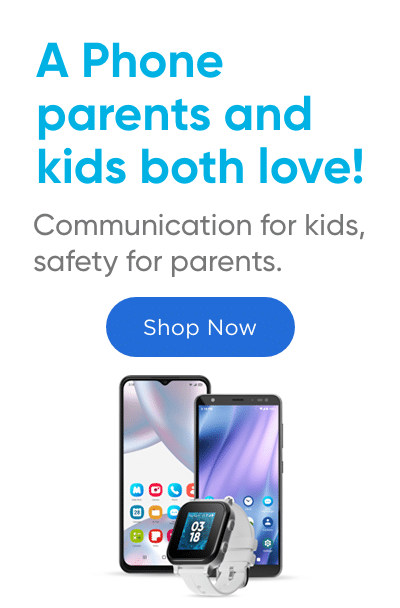Raising a Strong Daughter in a Toxic Culture: Help Her Take Control of Screens
SEP 09, 2021
Raising a Strong Daughter in a Toxic Culture: Help Her Take Control of Screens
My name is Dr. Meg Meeker. I am one of the country’s leading authorities on parenting, teens, and children’s health.
This article is directed to parents of young girls and in reference to my book “Raising a Strong Daughter in a Toxic Culture” and the chapter entitled, “Help Her Take Control of Screens”.
“Thank heaven for little girls.” Pigtails, jump rope, playing house, tea parties, and Disney princesses. At least, that is how it used to be. Raising a daughter used to be much less complicated. Never easy, but indeed, a great deal more straightforward. There was a time (even when the current parenting generation was growing up) when young girls could enjoy their adolescence without interference and distress from technology. But times have changed. Just in the past 10-15 years, technology has come in swift with guns blazing. And with it, a whole slew of complications for the youth: Social media, comparison culture, body dysmorphic disorder-inevitable aspects of a world engulfed in filters, photoshop, and video reels. Young girls are bombarded with these things daily. These days, it seems that girls can’t spare one minute before pulling out their phones to text their friends, “like” photos on Instagram, and take selfies. All too quickly, just like any other simulating habit, screen use becomes an addiction. And as we all know, addictions can be extremely dangerous.
At eleven-thirty in the evening, seventeen-year-old Evie heard a loud thumping on her front door. She knew who it was, and it scared her. When she opened the door, two police officers charged past her and frantically searched the house.
Five boys in the downstairs family room ran out the back door. Four girls stayed behind with Evie. Two policemen came downstairs. One said, “Where are they?”
“Where are who?”
“C’mon. You know who I mean. There are minors with alcohol on the premises. Your neighbors called, said they heard a commotion, and told us that underage drinking was going on. So I’ll ask you one more time. Where are they?”
Evie was frightened, and she didn’t want to lie or get arrested. “Sir, they left. There were five guys. I don’t even know who they were. They brought over vodka and beer, and some of us drank it.”
“Everyone gets a breath test. Your house. You first.”
Evie was assuredly not drunk or even tipsy, but she had an anxious, nervous feeling in the pit of her stomach. When the officer asked where her parents were, she looked away and quietly said, “I’m not sure, sir. They don’t know I’m here. I was supposed to be at a friend’s house for the weekend. They left Friday and won’t be back until Sunday.”
“Do they have cell phones?”
Yes, but please don’t call them. I will.”
“You do that. Since this is your home, you are the one responsible. I’m writing you up a citation. It’s late, so I want your friends to stay here. We’ll check on you in the morning. Got it?”
“Yes, sir.” When Evie shut the door, she and her friends were shaking, too afraid to speak.
They had never been in trouble before, and now they had done something that involved the police.
Evie’s parents knew their daughter was a good kid. She got good grades, was polite, obedient, and always wanted to please others. Her teachers loved her; her friends looked up to her; boys respected her. Her parents were not overly worried about going away for a weekend. They had arranged for Evie to stay with a friend whose parents would be home to provide adult supervision. Everything should have been fine.
So what happened?
Social media intervened. Evie and her friend decided to watch a movie at Evie’s house. They posted about the plan on Instagram. Two other girlfriends decided to join them there. One of them texted a boy, a senior from another school, and invited him over. He brought three friends with him. When they discovered no parents at home, they asked another boy to pick up some beer and vodka. Evie was mortified and finally slammed the door on more uninvited guests. They, in turn, called the police out of spite and claimed that minors were drinking in Evie’s home.
Evie thought she had done nothing wrong, yet everything had gone wrong. Social media can do that to kids; they have no idea how harmful it can be to broadcast every aspect of your life, to constantly update where you’re going and what you’re doing. Evie learned a difficult lesson, but luckily she suffered no emotional harm. Plenty of girls do.
A Parent’s Deepest Fears
The parents of this new parenting generation were lucky. They saw us, their children, nearly complete our entire K-12 education without cell phones. Yes, those days once existed. We grew up then. We vaguely remember a childhood before cell phones and social media. We remember “media” as things we would look at or listen to occasionally; and that any media consumption required a much bigger device, portable or not. No one was constantly online or connected to their radio, television, or landline. In retrospect, this nostalgia gives us some perspective, some calm. We spent the better parts of our childhood out in the real tangible world. We never felt bombarded with an endless stream of information and electronic stimulation.
Today’s kids, however, have their auditory and visual senses overloaded daily. Many people (not just kids) are obsessed or addicted to laptop movies, email, social media, video games, and mobile streaming, sometimes doing several of these things at once, feeling fidgety when not scrolling through their phones.
As parents, we can sense that this is not good for our kids. We have the innate intuition that technology has the potential to drive a wedge between us and that screens are taking over the lives of our kids.
Parents used to express their primary fear as the inability to protect their teenagers from sex, drugs, alcohol, and the unhappiness that inevitably follows when kids allow these things into their lives before they are ready. The latest addition to this daunting list of threats is social media.
How do we protect our kids from social media?
Parents feel helpless. They believe that social media usage is harming their children and isolating them from healthy relationships-and they are right.
But we mustn’t feel helpless. True, in the past, questionable media, like a raunchy movie, or suggestive song on the radio, could be easily avoided. All we had to do was turn off the TV or change the radio station. In our new, interconnected age, it is not so easy. Content, in general, has grown more adult and definitely more inappropriate for children. Pornography is effectively mainstream media- how did that happen? Social media platforms have wormed their insidious and addictive ways into too many young girls’ hearts.
For the record, as a parent, your fears are justified. However, we must not underestimate our parental influence over our children, namely our daughters.
Understanding the Danger
We must first look at the threat and the reason behind girls’ attraction to social media. The initial approach to Instagram, Facebook, and TikTok is usually innocent. Girls see these platforms as an opportunity to express themselves and measure their popularity, beauty, intelligence, and likeability compared to other girls. Social media is a way to interact with friends (and strangers, careful parents). They look forward to receiving comments on their posts and see platforms as guides to the latest trends-fashion, makeup, etc.-that can enhance their self-image. The irony, of course, is that social media has done the exact opposite for young girls, doing much more harm than good.
Girls crave approval and acceptance. Social media platforms offer a way for girls to find those things. If other people (friends, family, or even strangers) like them, they can like themselves. If girls feel accepted and “liked” enough, then they can believe they have value.
But this only works to an extent. Ultimately, screen approval is shallow and short-lived. No matter how many times a girl receives praise for being beautiful, sexy, or accomplished, someone will inevitably come along to destroy that image-to criticize, say something unkind, or belittle. Just as positive comments and “likes” bring her joy and boost her confidence, negative comments can be devastating. “Cyberbullying” has become a common occurrence and danger for young girls.
All teen girls compare themselves to others and have deep-rooted insecurities. I have found this to be absolutely true in my 30+ years of practicing pediatrics.
As parents, we may see our daughters as beautiful, intelligent, and accomplished, but that is not always the case for them. Our girls see the opposite-they see themselves as falling short of other girls they view as prettier, smarter, and more successful.
This innate insecurity drives the unspoken competitiveness in our girls, and social media has provided the perfect venue for comparison. The impeccable double-edged sword: social media offers girls a way to seek acceptance and approval from their peers, but adversely, through the use of social media, our girls have never felt more vulnerable or more alone.
Girls + Social Media = Depression
Studies have clearly shown a link between social media use and depression in girls. Naturally, the more time a young girl spends on social media, the more at risk she is for depression: a harrowing fact considering the average teen girl’s obsession. Excessive social media use links to poor sleep patterns, undeveloped social skills, and low self-esteem- not to mention severe vulnerability to online harassment.
Even if girls know of the filtered, unrealistic content on social media, it doesn’t matter. Their value hangs in the balance. When a girl feels she is constantly coming up short compared to others, or experiences repeated rejection, she changes her public image. She assumes that she needs to be sexier, skinnier, and more fashionable to be liked. Adolescent girls are unsure about themselves and more willing to adopt personas to be more popular. They want to be mature, they want to be cool, and they often equate sophistication with being sexually provocative. Many parents are shocked by what their daughters do or say on social media, and they rarely see the worst of it.
Girls + Social Media = Loneliness
Superfluous social media use can replace real-life relationships with virtual, faceless ones. Photos and texts are no substitutes for actual human interaction. They can also be deceitful, leading teens into unhealthy relationships. Adults have the capacity to understand this, but most children do not. They think social media is harmless, that virtual relationships are not potentially dangerous. Children do not have the cognitive sophistication to go beyond their own immediate experiences and understandings, which is why most kids don’t recognize the dangers until something dangerous happens.
It’s on Us, the Parents
We need to remember that our daughters’ screen time is only part of the problem. We are the primary role models for our children. Have you ever asked your daughter how she feels about your screen use? Would she say that you are on your phone too often? Our daughters will pattern their screen habits from what they see from us, their parents.
The good news is that, as a parent, your influence is far more impactful than any screen. Attentive parents are far more likely to protect their daughters from depression and dangerous online interactions.
Part of that attentiveness is setting rules about screen time in the home. The first step is to engage in an open dialogue with your daughter. Express to her that while you understand the appeal of screen time- and have felt its pull for yourself- it’s vital not to let screens take over our lives. Indeed, kids can often be more tech-savvy than their parents. But while they might be technologically proficient, their understanding of the broader implications of screen time is almost certainly lacking. They are the kids; you are the adults. You can see the risks that they can’t. So open up with your daughter about the negative aspects of social media and how they make her feel. Together, conclude that social media is a waste of time and gets in the way of healthier, more fulfilling relationships.
Work with her to come up with alternative activities. Challenge the entire family to even participate in a screen detox, one week without phones. The benefits of this exercise are astronomical. As the parent, you will be practicing your own principles and setting the example for your daughter. You’ll have more time to enjoy each other and re-establish a strong connection. Before too long, your daughter will realize how much better she feels when she’s engaged in the real world and away from social media.
After the one-week detox, reconvene as a family and discuss more permanent screen time practices to establish in the home. One rule, for example, could be to never be behind a screen when someone else is in the room. Kids, even more than adults, hate being ignored in favor of a phone. Never let your daughter feel invisible. When your daughter enters the room, turn off the television, close the laptop, put away the phone. Help her self-esteem by showing her that she is the priority above any device.
Another possible rule: no phones at mealtimes, ever. Phones at the table during a family meal have become a universal problem. There is no open conversation, just everyone on their phones. Do yourself a favor, have your entire family put their phones away. Give priority to the family.
If you think- as most parents do- that your daughter is a good kid, keep her that way. Protect her from social media platforms that will distort her understanding of human interaction, diminish her sense of self-worth, and make her more likely to be pressured by her peers. Teaching your daughter to be open and honest and to focus on engaging with the people around her, rather than with screens, is an important lesson that will help her find the path to a happier, fulfilled life.












Success!
Your comment has been submitted for review! We will notify you when it has been approved and posted!
Thank you!